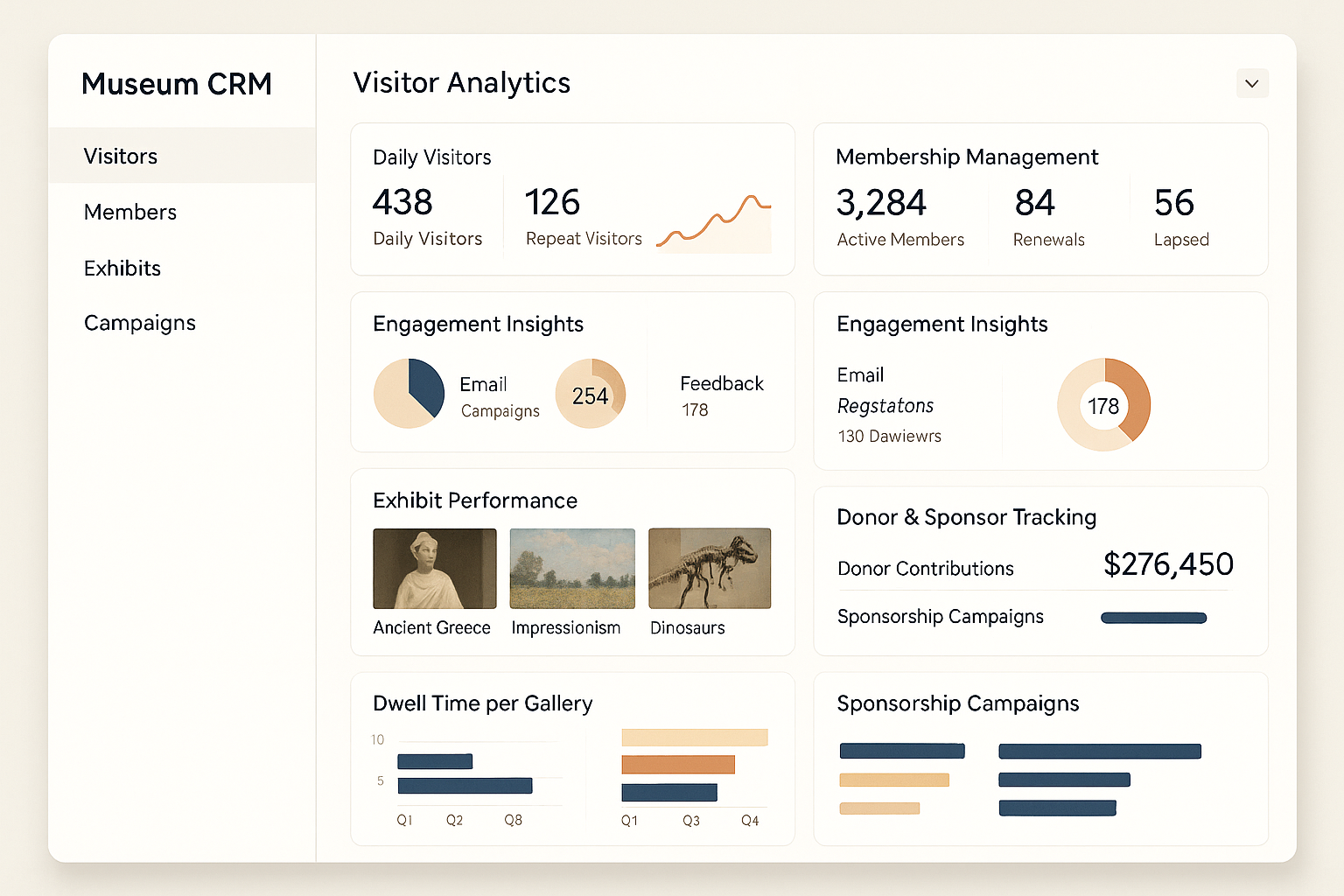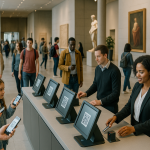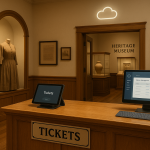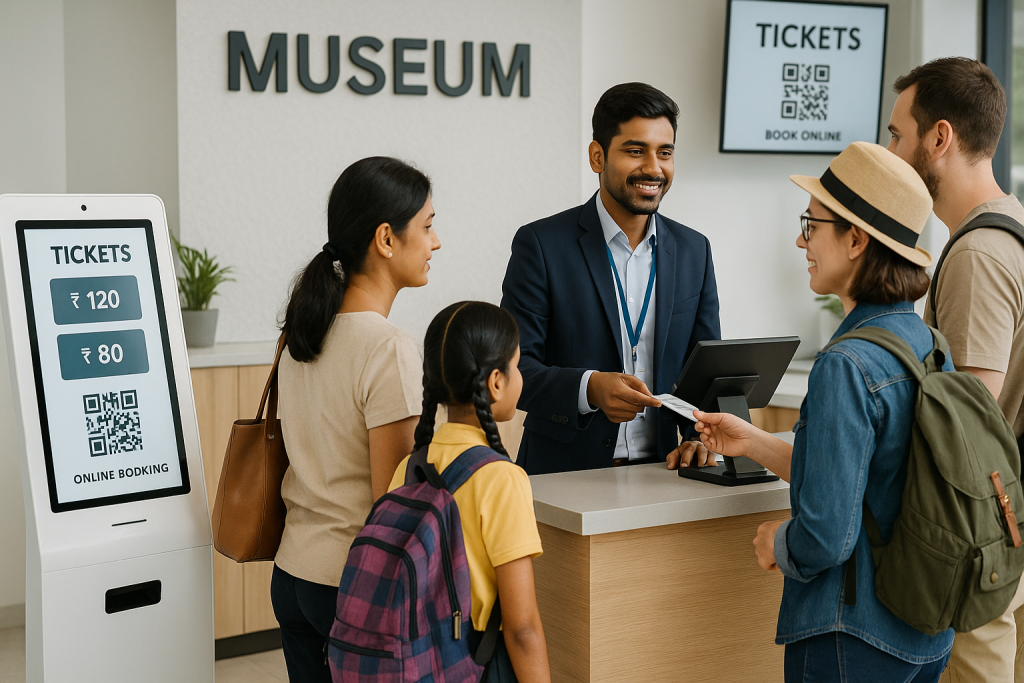Museums ask one big question today: how do we keep visitors coming back? The answer is CRM software for museums. A CRM is not just a database or a ticketing tool. It is a system that helps museums collect visitor information, track behavior, and stay in touch.
With a CRM, a museum can see who visits once, who returns, and what people enjoy most. This data makes it easier to send the right message at the right time. It also helps create a better museum visitor experience.
Instead of treating every visitor the same, museums can use CRM tools to build real connections. Stronger relationships lead to more visits, loyal members, and lasting cultural impact.
What Challenges Do Museums Face in Building Visitor Relationships?
Most museums struggle to know their visitors well. A ticket sale shows when someone entered, but it does not reveal if they ever come back. Without this knowledge, it is hard to track repeat visitors or measure loyalty.
Another challenge is weak engagement. Many museums still send the same message to everyone. Generic emails or posters do not connect with different groups. Families, students, and art lovers all expect something unique.
Museums also miss feedback. Visitors leave after an exhibition, and their opinions often go unheard. Without feedback, it is hard to improve the museum visitor experience.
These gaps lead to missed opportunities. When visitors do not feel seen or valued, they may not return. Museums lose repeat visits, memberships, and donations. That is why growth-focused museums look for smarter ways to manage relationships and build long-term engagement.
Also Read Expert Guide: Best Event Ticketing Software Systems 2025
How Does CRM Software Help Museums Improve Engagement?
CRM software for museums gives cultural institutions the tools to understand and connect with visitors in a smarter way. Instead of guessing what people want, museums can use data to guide their outreach.
A CRM collects details like visit history, membership status, and event attendance. This helps staff see clear patterns. For example, if families often attend weekend events, the museum can send them family-focused offers. If a visitor has not returned in six months, the system can trigger a reminder or a discount.
CRM also improves communication. With integrated email and messaging tools, museums can reach visitors at the right time with the right content. This makes outreach feel personal rather than generic.
The result is stronger museum visitor engagement. Visitors feel noticed, valued, and more likely to return. For museums, this means higher attendance, better retention, and deeper community ties. Engagement moves from a challenge to a growth opportunity.
What CRM Features Enhance the Museum Visitor Experience?
A CRM is more than a database. It comes with features that help museums create better experiences for every visitor. The most useful tools focus on data, personalization, and communication.
How Do Museums Use Visitor Data Analytics?
- Museums gather thousands of visitor records every year.
- Without analysis, this data remains unused and unhelpful.
- A CRM with visitor data analytics converts raw records into useful insights.
- Staff can track repeat visits, popular exhibitions, and peak visiting days.
- Insights help plan events when audiences are most active.
- Programs can be designed for groups showing consistent interest.
- Manual systems could not deliver this level of museum visitor analytics.
- Data-driven decisions replace assumptions, improving outcomes.
How Do Personalized Museum Experiences Drive Loyalty?
- Visitors increasingly expect personalized attention during museum interactions.
- A CRM enables museums to collect and analyze visitor preferences and behaviors.
- Staff can send tailored communication such as exhibition invites, discounts, or program reminders.
- Example: art enthusiasts receive exclusive preview invites, families get family-day promotions.
- Personalized outreach makes visitors feel recognized and valued.
- This strengthens emotional connection with the museum.
- Personalization encourages repeat visits, membership sign-ups, and long-term loyalty.
- Result: improved museum visitor retention and stronger community ties.
How Do Museum Communication Platforms Boost Engagement?
- Museums often lose connection with visitors after they leave.
- CRM-powered museum communication platforms solve this with automated emails, mobile alerts, or SMS reminders.
- Messages can promote upcoming exhibitions, share educational content, or request feedback.
- Communication is targeted: families receive family program updates, students get workshop details, and members hear about exclusive events.
- This targeted approach is central to museum marketing CRM.
- Result: stronger digital engagement where visitors stay connected and are more likely to return.
Must Read: Why Your Museum Needs a Ticketing Software in 2025
How Can CRM Software Help Museums Retain More Visitors?
CRM software gives museums tools to turn first-time visitors into loyal guests. It stores visitor data, preferences, and past interactions in one place. Staff can send reminders, updates, or special offers at the right time. CRM also helps segment audiences, families, students, tourists and send them tailored communication. This makes visitors feel valued and more likely to return.
What Growth Opportunities Does CRM Create for Museums?
CRM is more than a retention tool. It opens doors for growth. With clear visitor insights, museums can:
- Design better exhibitions based on audience interests.
- Launch membership programs that drive steady revenue.
- Sell more merchandise or add-on experiences through targeted promotions.
- Build partnerships with schools, corporates, and travel agencies.
- Grow digital communities with newsletters and social campaigns.
CRM shifts museums from reactive to proactive growth strategies.
Explore How EveryTicket Can Help!
CRM software is no longer optional for museums. It is the key to stronger visitor relationships, higher revenues, and long-term growth. By using data smartly, museums can move beyond transactions and build lasting connections.
Ready to make your museum visitor-first? Explore how EveryTicket CRM for Museums can transform your operations and retention strategy.
Fill out the inquiry form today to book your free demo of EveryTicket – CRM for Museums. Join leading museums already using our ticketing software to streamline operations, boost visitor engagement, and build long-term growth.



